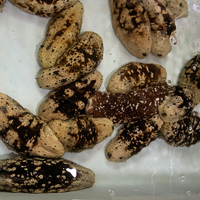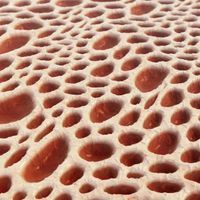hormones

A Single Transcription Factor Changes Ants to Queens
Abby Olena, PhD | Nov 5, 2021 | 3 min read
The transcription factor can also drive the opposite transition depending on which hormone activates it, according to a new study.

Hormones May Contribute to Asymmetrical Effects of Brain Injury
Catherine Offord | Sep 2, 2021 | 4 min read
Researchers studying rats claim to have found a novel connection between damage on one side of the brain and problems with the posture or movement of limbs on the opposite side of the body.

Darby Saxbe Digs into Relationships’ Effects on Human Biology
Shawna Williams | Aug 1, 2021 | 3 min read
In her current work, the University of Southern California psychologist is examining how the transition to fatherhood affects men’s brains.

Endocrinologist Jean Wilson Dies at 88
Lisa Winter | Jun 24, 2021 | 2 min read
The University of Texas Southwestern professor’s research focused on the androgen hormones that cause male sexual differentiation and may also lead to prostate disease.

New Role for Leptin: Promoting Synapse Formation in Rat Neurons
Abby Olena, PhD | May 20, 2021 | 3 min read
The hormone, which is well known for regulating appetite, appears to influence neuronal development—a finding that could shed light on disorders such as autism that involve dysfunctional synapse formation.

High Stress Hormone Levels Halt Mouse Fur Growth
Jef Akst | Apr 1, 2021 | 4 min read
Corticosterone interferes with signaling in the skin that normally activates hair follicle stem cells, possibly explaining the link between stress and hair loss.

Infographic: Measurements that Predict People’s Behavior
Paul J. Zak | Oct 1, 2020 | 1 min read
Changes in blood levels of oxytocin and adrenocorticotropic hormone and patterns of neural activity predict how much money people will donate to a cause with high accuracy.

Neurological Correlates Allow Us to Predict Human Behavior
Paul J. Zak | Oct 1, 2020 | 10+ min read
A combination of factors, from oxytocin release as an indicator of emotional investment to cortisol and other hormones that correlate with attention, can forecast what people will do after an experience.

Roger Unger, Endocrinologist and Authority on Diabetes, Dies
Amanda Heidt | Sep 4, 2020 | 2 min read
The University of Texas Southwestern scientist studied the roles of glucagon and insulin in regulating blood glucose, leading to several successful treatments.

Two Studies Question Function of Bone Hormone Osteocalcin
Ruth Williams | May 29, 2020 | 4 min read
Independently produced knockout mouse strains fail to find evidence of the bone protein’s endocrine functions, and divide researchers’ opinions.

Into the Light: A Profile of Joanne Chory
Emily Makowski | Mar 1, 2020 | 8 min read
The plant geneticist has revolutionized researchers’ understanding of how light affects plant growth and development, and is engineering plants to combat climate change.

Bruce McEwen, Stress Hormone Researcher, Dies
Emily Makowski | Jan 6, 2020 | 2 min read
The Rockefeller University neuroendocrinologist made landmark discoveries on how hormones affect brain structure.

Monthly Contraceptive Pill Shows Promise in Pig Study
Catherine Offord | Dec 5, 2019 | 2 min read
A device that releases synthetic hormones slowly over time could one day provide a more practical alternative to daily birth control pills, say scientists.

Rising Temperatures Expected to Spur More Early Births
Ashley Yeager | Dec 2, 2019 | 2 min read
From 1969 to 1988, 25,000 infants were born early each year as a result of hot weather, and with global warming pushing temperatures higher, more babies will be at risk for early birth.

Image of the Day: Reprogrammed Ants
Emily Makowski | Nov 13, 2019 | 2 min read
Watch soldier ants behave more like foragers after scientists change their gene expression.

Image of the Day: Fizzy Birth Control
Emily Makowski | Nov 7, 2019 | 1 min read
A microneedle patch can subcutaneously deliver a contraceptive hormone to rats.

Image of the Day: Sea Cucumber Hormone Therapy
Emily Makowski | Oct 28, 2019 | 1 min read
Researchers will inject a relaxin-like hormone into sea cucumbers to boost the animals’ numbers.

Bone Hormone Sparks Fight-or-Flight Response in Mice
Ruth Williams | Sep 12, 2019 | 3 min read
A brain-activated, bone-derived hormone called osteocalcin regulates the acute stress response in rodents and possibly humans.

Infographic: How to Catch Cheating Athletes
Anna Azvolinsky | Sep 1, 2019 | 3 min read
Anti-doping agencies are tracking levels of various molecules in athletes’ blood and urine over time to increase their ability to detect drug misuse.

Gene Variant Linked to Lower Levels of Hormonal Birth Control
Shawna Williams | Mar 14, 2019 | 2 min read
Such differences may help explain accidental pregnancies among women on the pill, researchers say.
